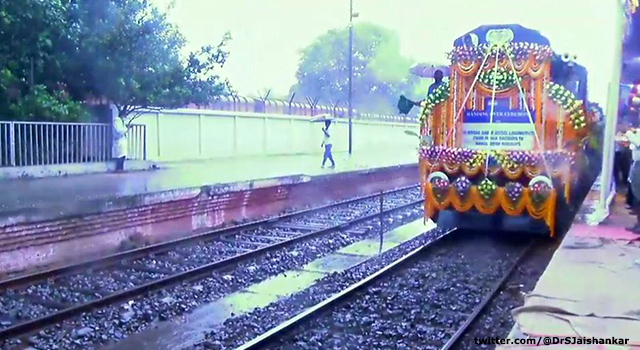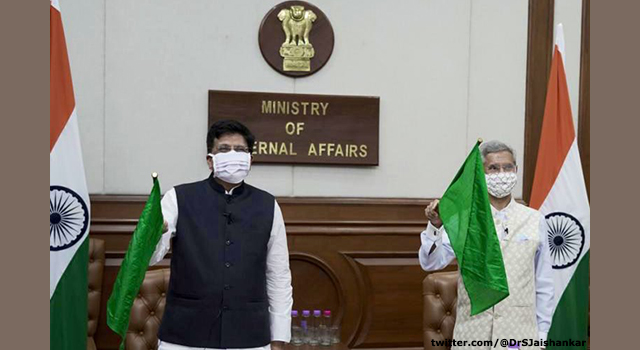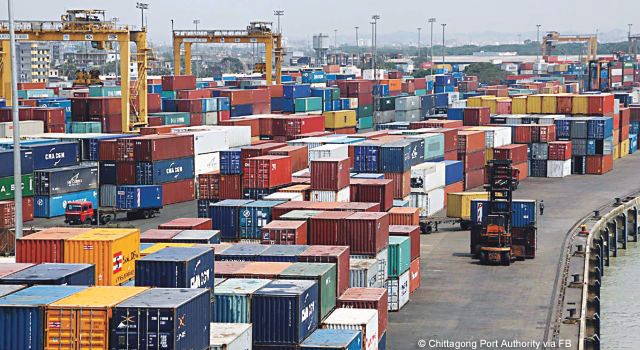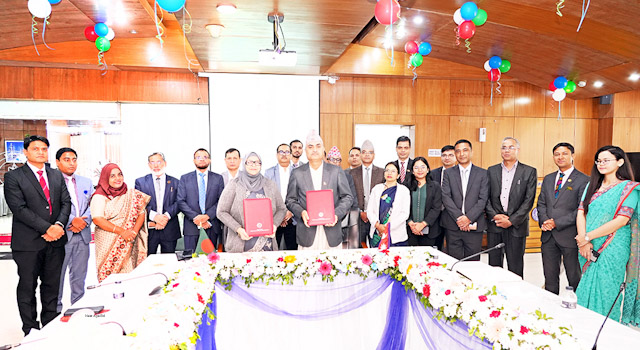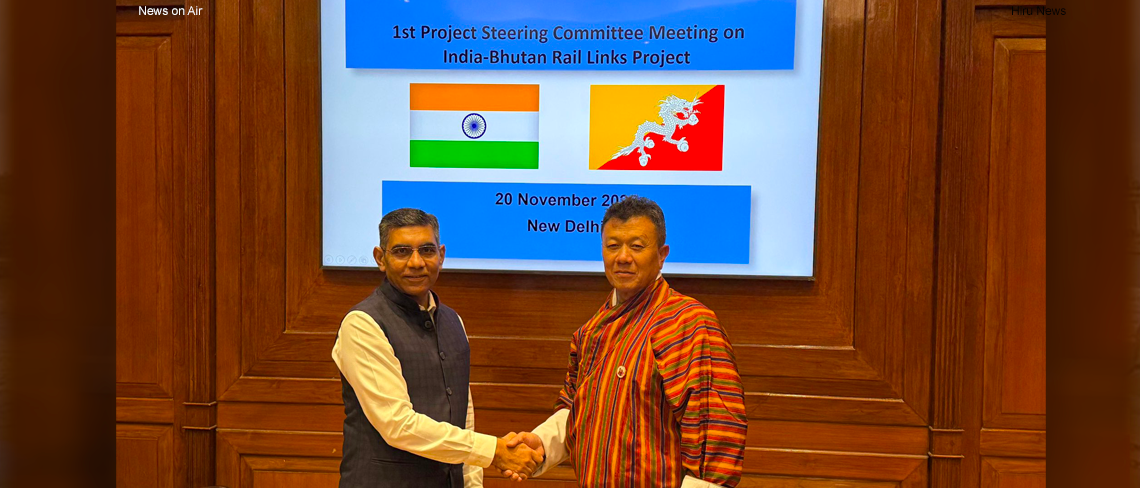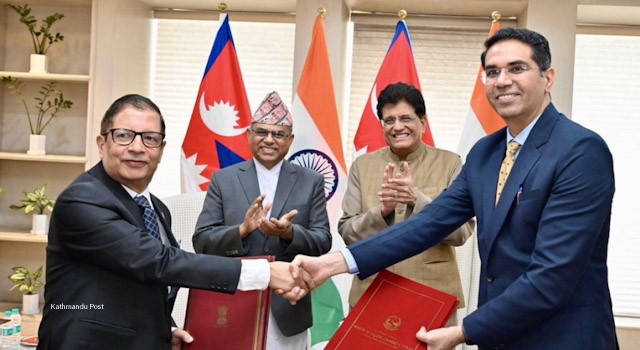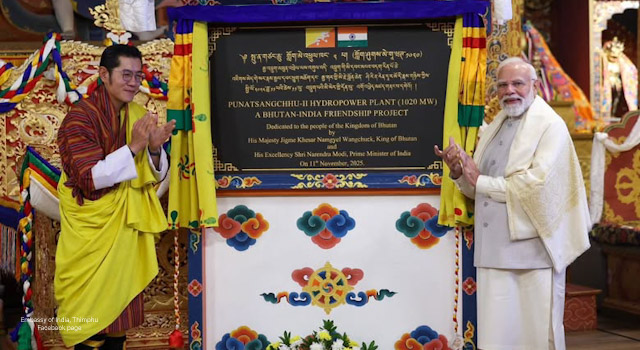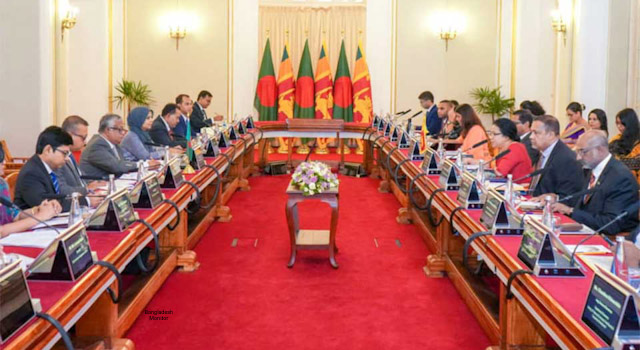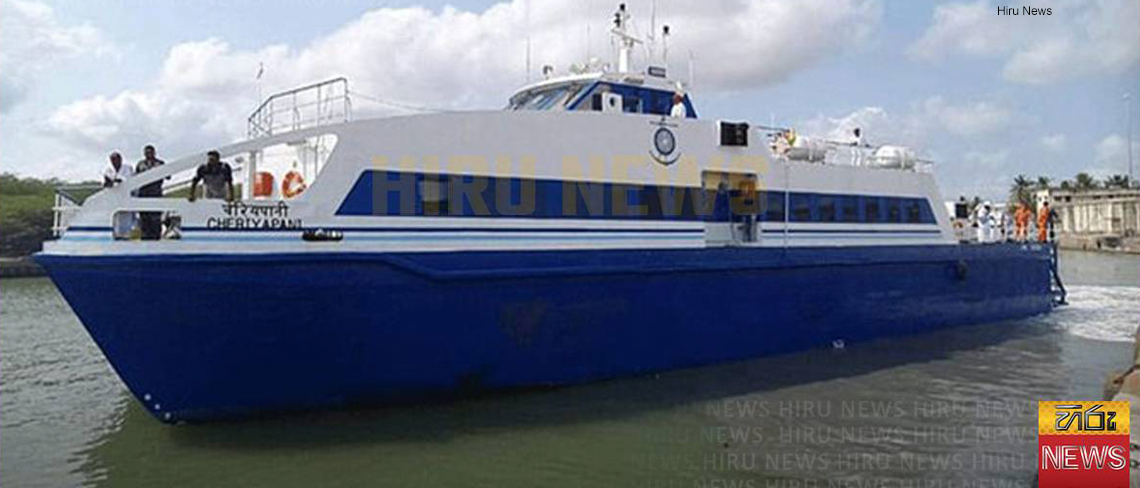
10 Broad Gauge Railway Locomotives to Further Ramp Up Bangladesh-India Links
28 July 2020
The Government of India turned over 10 broad gauge railway locomotives to Bangladesh as part of a grant assistance on 27 July 2020. It fulfills a commitment made by India during Bangladesh Prime Minister Sheikh Hasina’s visit to New Delhi last October 2019.
The two nations are committed to ramp up initiatives in connectivity and infrastructure to boost bilateral trade and promote the creation of new supply chains amidst the ongoing coronavirus disease (COVID-19) pandemic. This turnover closely follows the launch of parcel and container train service and transshipment of goods between Kolkata port and Chattogram port.
Dr. Subrahmanyam Jaishankar, Minister of External Affairs of the Government of India and Mr. Piyush Goyal, Minister of Railways of the Government of India, flagged off the locomotives in a virtual ceremony, with Dr. Abul Kalam Abdul Momen, Minister of Foreign Affairs of the Government of Bangladesh, and Mr. Mohammed Nurul Islam Sujan, Minister of Railways of the Government of Bangladesh, in attendance.
Speaking at the ceremony, Dr. S. Jaishankar noted that the India-Bangladesh partnership stands out as a role model in the region for good neighbourly relations. He added that the implementation of India’s “neighbourhood first” policy was most evident in Bangladesh. India’s concessional lines of credit of nearly $10 billion for Bangladesh is the largest provided to any country. In 2019, Bangladesh exports to India crossed the $1-billion mark, an increase of 43%. Dr. Jaishankar invited Bangladesh’s business community to enhance their engagement with India.
Thanking India for the locomotives, Dr. Momen emphasized that India-Bangladesh relationship is rock solid and is based on shared values. He also highlighted that two old railway links that are currently being revived will establish rail connectivity with Bhutan, and provide the shortest route to connect with Nepal.
Furthermore, Dr. Momen underscored that connectivity is more than seamless mobility of people, goods and capital. He said Bangladesh and India need to work on harmonizing standards, customs, and immigration procedures, as well as environmental concerns.
Related link:




